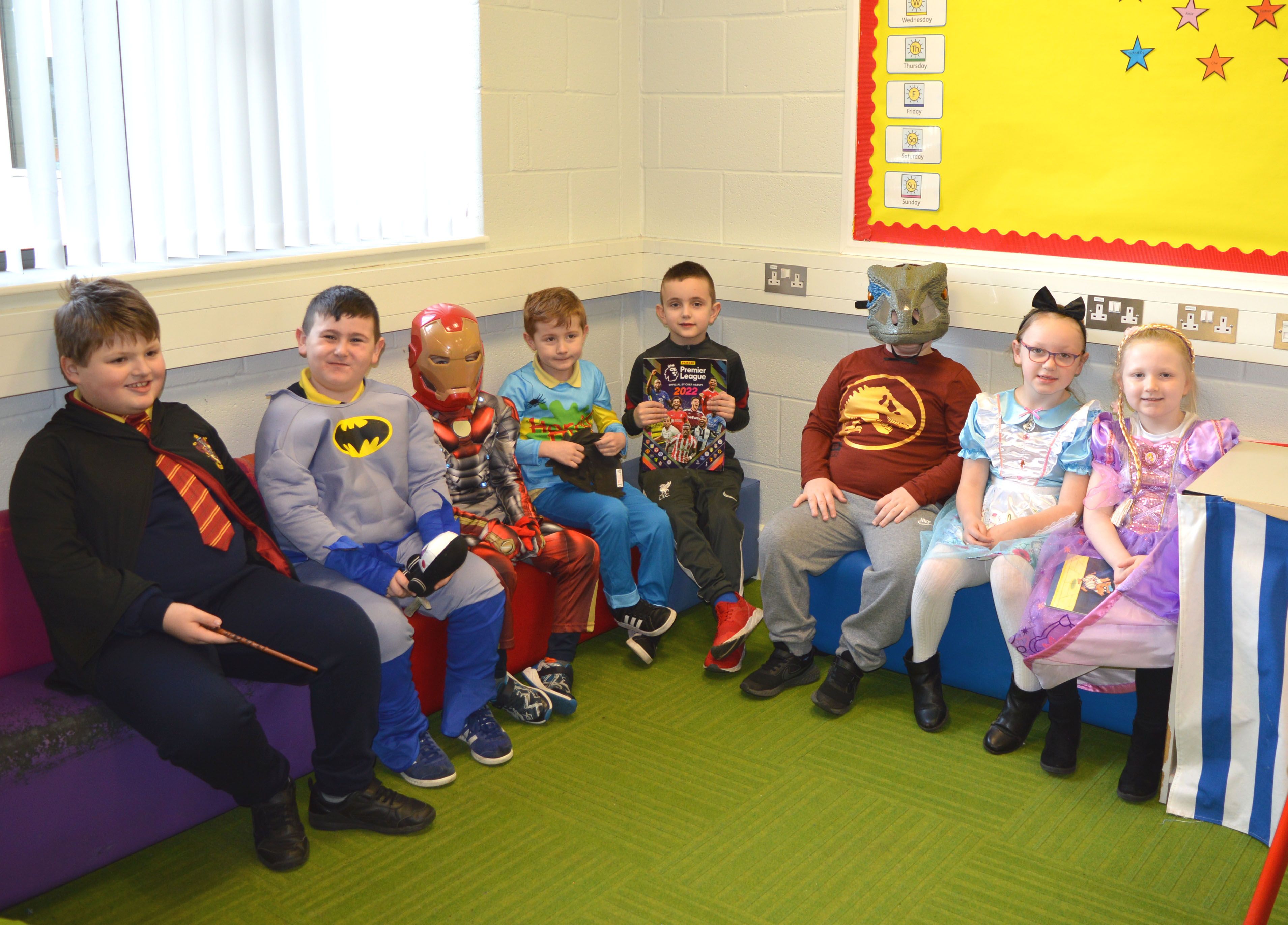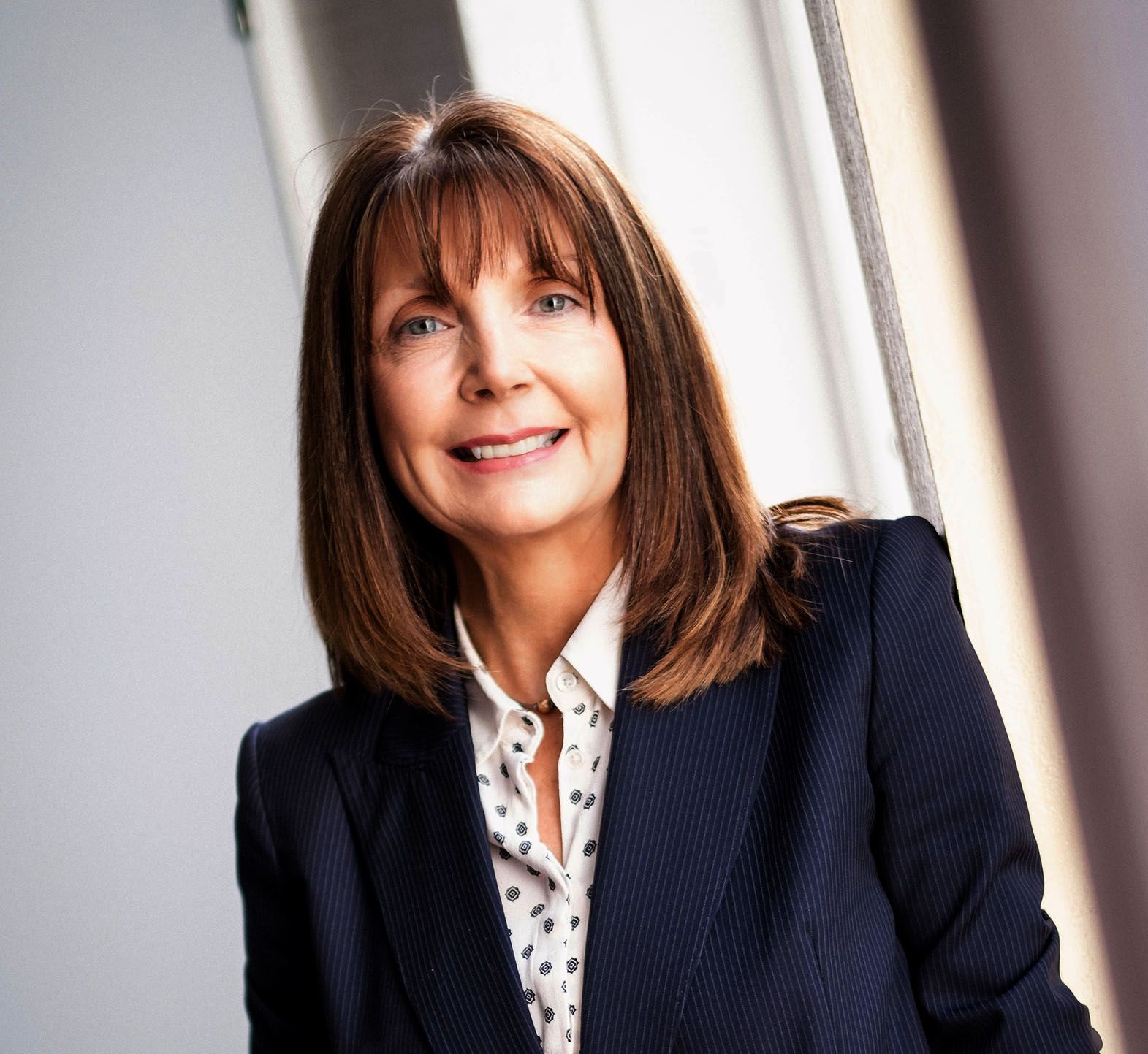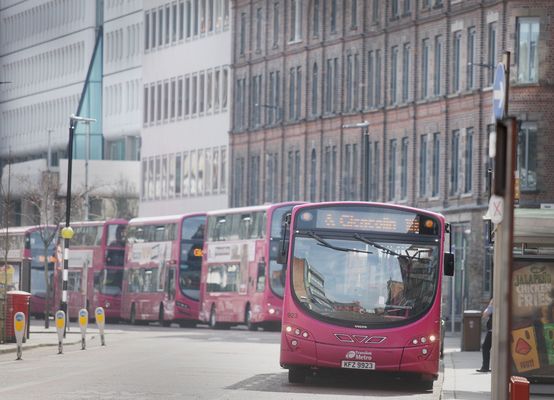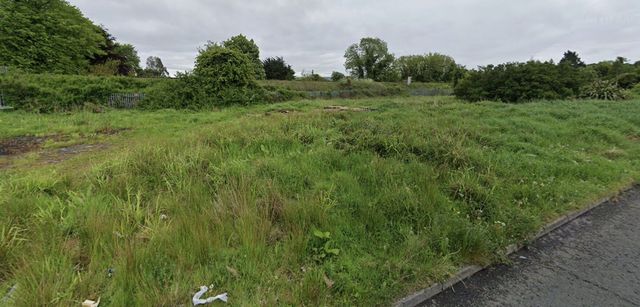FIFTY years is a long time to measure change in any society and that’s especially true in a society like ours which underwent massive upheaval and turmoil in that time. It would be hard to find any sector of society in West Belfast which is the same as it was in 1972 and that is especially the case for education.
Long gone are the days when education was simply ‘reading, writing and ’rithmetic’ as schools have increasingly taken a more holistic approach to learning and put a renewed emphasis on emotional health and wellbeing.
Tracy Rea, a teacher from St Gerard’s on the Blacks Road – which specialises in educating children with additional needs – spoke about the massive changes which have happened in the provision of special needs education.
“St Gerard’s has been in Belfast for around 38 years and I’ve been teaching there for 30 years," she says of the school which scooped the Kennedy Centre Aisling Education Award in November.
"In the past there were lots of resources for teachers to help with their professional development but that has gone now. We have to work very collaboratively with other schools all over Belfast and across Ireland, to make sure our staff know the best way to teach our children."
"The biggest change I’ve seen is in the number of children with a statement of special educational needs. When I started, we had around 180 kids and only 12 classroom assistants and now we have 378 kids and 120 learning support assistants. There has been an increase in the number of kids coming to us with what we call barriers to learning and that’s because the diagnosis has got so much better.
“We have expanded from teaching children with mild learning difficulties to teaching children with more profound difficulties and children who are also nonverbal and have complex needs.”
Students at St Gerard’s having fun on World Book Day. The school now has 378 pupils and 120 learning support assistants
Tracy said there’s a lack of spaces for children with additional needs and this is further hampered by West Belfast no longer having a school which focuses on this cohort.
COMMUNITY INVOLVEMENT KEY
“The biggest difficulty we face is with placements," she explained. "There aren't enough spaces for the number of children who are being diagnosed. We used to be on the Springfield Road, but we relocated to the Blacks Road so there now isn’t a school in West Belfast for children with those needs.
We congratulate Stephen Ramsey from @StGerardsSchool who took home this year's Aisling Award 2022 for Education. Many thanks to Sam Kennedy from our partner, the @KCbelfast for their assistance. #AislingAwards pic.twitter.com/6oNGti1xmr
— Andersonstown News (@ATownNews) December 1, 2022
"Another big change is that schools no longer work in isolation but are very much involved with the community. There are loads of clusters where schools come together to share their expertise. I know we couldn’t do the work we do without that community support.
“Obviously the other big change is technology. Instead of blackboards and chalk we have interactive whiteboards and iPads for the children. There is also a far bigger emphasis on mental health and wellbeing for the children. Education has taken on a more holistic approach so it’s not just on learning, it’s on the child’s social and emotional wellbeing as well, which is why we couldn’t do what we do without community involvement.”
Tracy says the family hub at St Gerard's is central to its work: “A big aspect of life at St Gerard’s is our family hub where we get together with families to share our expertise and help them with advice and support from experts in areas such as children with ASD. We hold workshops for parents and accompany parents to medical appointments. We help parents who are new to the school and also help the parents of children who may be transitioning from our school into a mainstream school."
And the St Gerard's veteran has a clear vision of a better future in educational terms.
“Over the next 50 years what I would like to see is every child with a statement of special needs get quality provision in the area in which they live and for every school to have a parents’ hub to support parents so it isn’t hard for parents to access services. I would also like to see a dedicated super school set up in West Belfast.”
FUNDING STRAINS
In terms of primary level education, one person who has lived the changes in that sector is Paddy McCabe, Principal of St Oliver Plunkett primary school on the Glen Road. There isn't much Paddy doesn't know about the school - 50 years ago, he was a pupil there himself.
“Schools are now so much more than just a school," Paddy told us. "We are immersed within our communities to support the needs of the children, parents and society’s wider needs. We deal with a lot more social issues than what we dealt with in the past. When I think about what I was doing here as a pupil 50 years ago to what I see in our classrooms now, it’s changed so much. Technology is now so important, it plays a part in all our teaching because this is the world our children live in now."
💥Come along to our open day 7th December at 1.30pm💥
— St.OliverPlunkett PS (@StOPPSBelfast) November 29, 2022
This full video can be found on our school Facebook page and website.https://t.co/hc7PihKIuP pic.twitter.com/IEjMtynqmM
The St Oliver Plunkett head says funding hasn't kept up with the demand on educational resources.
“One of the biggest issues schools face these days is coping with the very little assistance we get beyond our own four walls," he explains. "In the past there were lots of resources for teachers to help with their professional development but that has gone now. We have to work very collaboratively with other schools all over Belfast and across Ireland, to make sure our staff know the best way to teach our children. Teaching is constantly reinventing itself to meet the demands of the children and I am amazed by the commitment and creativity of the staff in our school.
“The biggest issue in teaching today is that I think too much is expected from schools and there is a lot of pressure on schools. I think there needs to be more strategic support put in place. Schools in the North have historically been underfunded and it’s now got to the stage where things are at a crisis point but we are continually asked to make more cuts, whilst expanding our services.”
But Paddy has high praise for the pupils, past and present. “Our biggest achievement over the last 50 years has definitely been the calibre of children who have attended and been educated at our school. I can’t credit them enough and our amazing staff are always ensuring that the children who attend here get the best education possible and go on to achieve amazing things.
“I think it’s hard to predict where education will be at over the next 50 years. I attended St Oliver Plunkett’s 50 years ago and I think if I could time travel and put myself then as a child into one our classrooms today I wouldn’t recognise the place. When I was in school there was very little technology, there was corporal punishment and our relationships with our teachers were completely different.
“The boys’ and girls’ schools weren’t together then as well. I think in 50 years we’ll see a better relationships between parents, kids and schools. We’ll continue to see more technology to enhance learning and also more community involvement." He has one other aspiration. "I hope in 50 years’ time they’ll have built a new school building!”
TEACHING FOR THE FUTURE
West Belfast's secondary schools are second-to-none and one excellent school in that sector is All Saints College in West Belfast. All Saints was formed as part of an amalgamation between St Rose’s Dominican College for girls, Corpus Christi College and Christian Brothers’ School for boys.
Our relationships have changed so now parents feel they are able to come and talk to us in schools. When I went to school my teachers didn’t know anything about me. They'd know your name and what your dad did but that was only to see whether or not you got free school meals!
Bronagh Farrimond, Principal of All Saints, notes that most principals in West Belfast are women, "something which was undreamt of 50 years ago".
“When I initially took over at CBS, I was the first female post-primary Principal in a (Christian Brothers' school) in the whole of Ireland," she said.
“The Christian Brothers had a major impact on education in West Belfast. Now they are no longer here but their ethos and the ethos of Edmund Rice continues today.
“Schools are now far more focused on pastoral care than ever before. That is one of the biggest differences between 50 years ago and today. The relationship we have as a school with parents and the children we teach is very close. School is now a partnership, and we have a closer relationship with parents and children. Education is no longer where children just to go learn the three Rs, we are involved in so much more to do with the home lives and with the parents of the children we teach.
Education Minister Peter Weir visited @SaintsCollege today and met Principal Bronagh Farrimond, Board of Governors Chair Mr McClory and others to discuss the recent announcement that the school would advance in design under the Major Capital Works Programme. pic.twitter.com/FA1gD1vFlM
— Education NI (@Education_NI) August 26, 2020
“Teaching is no longer reading, writing and arithmetic, we’re now taking on roles as social workers, nurses, everything. Our relationships have changed so now parents feel they are able to come and talk to us in schools. When I went to school my teachers didn’t know anything about me. They'd know your name and what your dad did but that was only to see whether or not you got free school meals! Nowadays we know an awful lot about the children we teach and about the parents and we are very close with all of them."
Realising the potential of every pupil is a priority for All Saints.
“Our society is also changing and schools are changing with that. Schools have gone away from subjects such as Latin and now we focus on all sorts of skills and qualifications which will help young people succeed in the modern world. We’re looking further ahead with education. We're not teaching children for just today and tomorrow but for years and years ahead. There are pupils in Year 8 and 9 who will be going into jobs that haven’t been invented yet!”
'FAST WORLD' CHALLENGES
Across the road from the All Saints campus on the Glen Road is another venerable educational institution of West Belfast, also founded by the Irish Christian Brothers: Scoil Mhuire or St Mary's CBS Grammar.
Principal Siobhán Kelly says the alumni of St Mary's - many of whom have gone on to occupy senior positions in diverse fields worldwide - have made a contribution to the school's success.
“There have been so may changes to schooling during my 35 years as a teacher," she said. "We now have access to a wide and varied subject choice which includes arts and science subjects but also is enriched with vocational qualifications which have prepared our students for both higher education and the world of work.
I worry about the pressure of social media and opportunities to get mixed up in drugs and anti-social behaviour and how simple wrong turns in life can have a huge impact on life chances.
“One key change which I have witnessed is the valuable contribution our alumni can make to school life. Not only do we have many past pupils working in the school in both teaching and non-teaching roles but we also have built strong links with our alumni over many decades and these past pupils contribute richly to school life by offering work experience, mentoring students, contributing to careers events and workshops. Schools are no longer places where teachers teach, and the students sit in rows of desks. We now welcome the contribution from other professionals to widen the opportunities for our students.”
— St. Mary's CBGS (@STMARYSCBGS) December 13, 2022
Siobhán Kelly comes from a family steeped in education. “My mother was a teacher, and my two sisters are also in education with one also a principal of a school. My sisters and I were all educated in West Belfast. We were taught to work hard and that you could in turn achieve great things. There is always a certain amount of good fortune in the building of a career, but a lot of your luck is home-made. I tell my students every day to be responsible. In any career there will be hard days, good days and bad. To achieve you must be dedicated, resilient and learn from your mistakes, because we all make them.
“Principals are only as good as the team they work with in schools. I am lucky to have worked with excellent practitioners, both teachers and non-teachers, who have supported me in the plan I have for the school. ‘No man (or woman) is an island’ and I am thankful for the team I lead in St Mary’s. They do a terrific job every day."
St Mary’s Principal Siobhan Kelly worries about the pressures of social media on pupils
But challenges are ubiquitous. “There are ongoing challenges with the ‘fast world’ we live in. I worry about the pressure of social media and opportunities to get mixed up in drugs and anti-social behaviour and how simple wrong turns in life can have a huge impact on life chances. Resilience, mental health, building strong values have always been priorities in education and in the homes in West Belfast but they are even more important post-Covid."
And the St Mary's CBS Grammar head concluded with a note of thanks to her 50-year-old neighbour on the Glen Road, the Andersonstown News. “We have been fortunate to have an excellent supportive relationship with the Andersonstown News. As a successful school in many sporting fields, we have enjoyed reading about the successes of our teams on the back pages of the paper. We have also celebrated the important occasions throughout the academic year with features in the paper."







